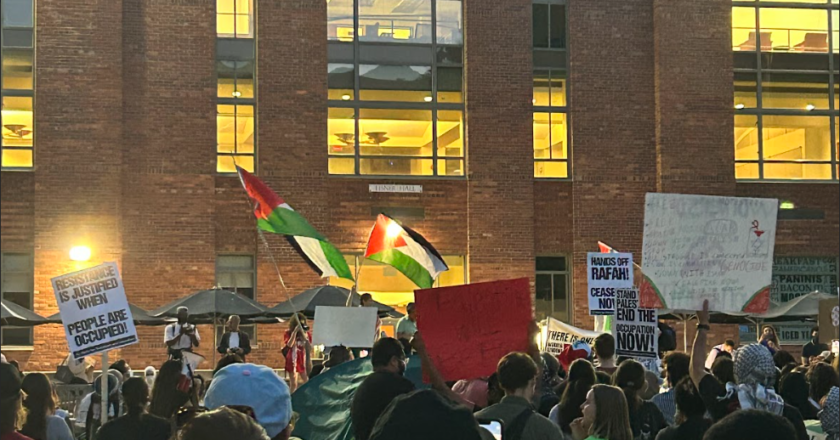Recent geopolitical events, including the attacks on October 7, and the subsequent Israel-Gaza conflict, have sparked polarizing campus controversies across the United States. These events have led to large protests and leadership changes at major universities, highlighting issues related to administrative accountability, student safety and rising tensions on campus.
The Israel-Gaza conflict is rooted in a long history of territorial and political disputes. Gaza, a small strip of land between Israel and the Mediterranean Sea, remains under partial Israeli control, particularly concerning air traffic, to prevent terrorist activities.
In 2006, Hamas, a militant group, was elected to govern Gaza. Over the years, tensions between Israel and Hamas have escalated, leading to a recent terrorist attack by Hamas on Israel, aimed at gaining full independence for Gaza.
In response, Israel, supported by military aid from its allies, including the United States, conducted airstrikes in Gaza, resulting in significant death rates among Palestinian civilians.
Over the past few months, many American universities have witnessed protests stemming from this conflict, drawing national attention to these uprisings. Students at institutions such as Harvard, Penn, Brown and others engage in activism, calling for administrative actions against injustices. These protests are a part of a much broader wave of activism on campuses, as students increasingly use their voices to advocate for change.
“Protests mostly consist of, aside from the hunger strike and the encampment, but also day to day rallies which mostly consisted of hundreds of students gathering on the main green”, a sophomore at Brown University who requested to remain anonymous said. “There would be speeches, chants, songs things of that nature.”
The majority of these protests, primarily focused on university divestment, aim to pressure administration to withdraw investments from companies involved in supplying weapons to Israel.
However, as these protests intensify, divisions become more apparent. When university administration and protestors failed to reach an agreement, protestors resorted to extremes to make their voices heard.
“What happened at Brown was the encampment ended because an agreement was reached. The terms of the agreement were that the encampment would be cleared in exchange for not divestment, but that administration would vote for divestment in October 2024, our anonymous source at Brown University said. “A lot of people thought that that wasn’t satisfactory because it’s not really what they were protesting for in the first place, which is why there are still rallies and protests going on.”
As campus unrest continues, student safety concerns have escalated. Students on campus were affected by both the storm of protestors onto main campus areas as well as the campus and local police forces called in to clear the rallies.
Students at far flung universities are experiencing similar turbulence, demonstrating how widespread these protests are. At Emory University, Atlanta locals have begun joining these Emory students, forcing the university President to call in local police forces as a means to protect campus students.
“The people that were protesting weren’t Emory students fully. There were a lot of random locals from Atlanta which is why the police were called by our president” , a sophomore at Emory University said. “Because Emory is a private campus, it was more so the danger of not the student protestors themselves, but the people that were coming to campus. That’s where the worry came from.”
Ignored by campus administration, some protestors combatted administration resistance with violence and discrimination towards the Jewish community.
“I’ve had conversations with Jewish students on campus saying that they do not feel safe”, a sophomore at Dartmouth University said. “A lot of the pro-Palestinian rallies have chants that are along the lines of ‘from the river to the sea, Palestine will be free, etc’ and many people take these chants as very anti-semitic.”
While the rise of protests at universities brought nationwide awareness to the Israel-Gaza conflict, students have expressed the overwhelming division and polarization they now face on campus.
“Campus has never felt more divided,” a sophomore at Dartmouth University said. “This is a tough topic to discuss with other students even though conversations are more than necessary.”

